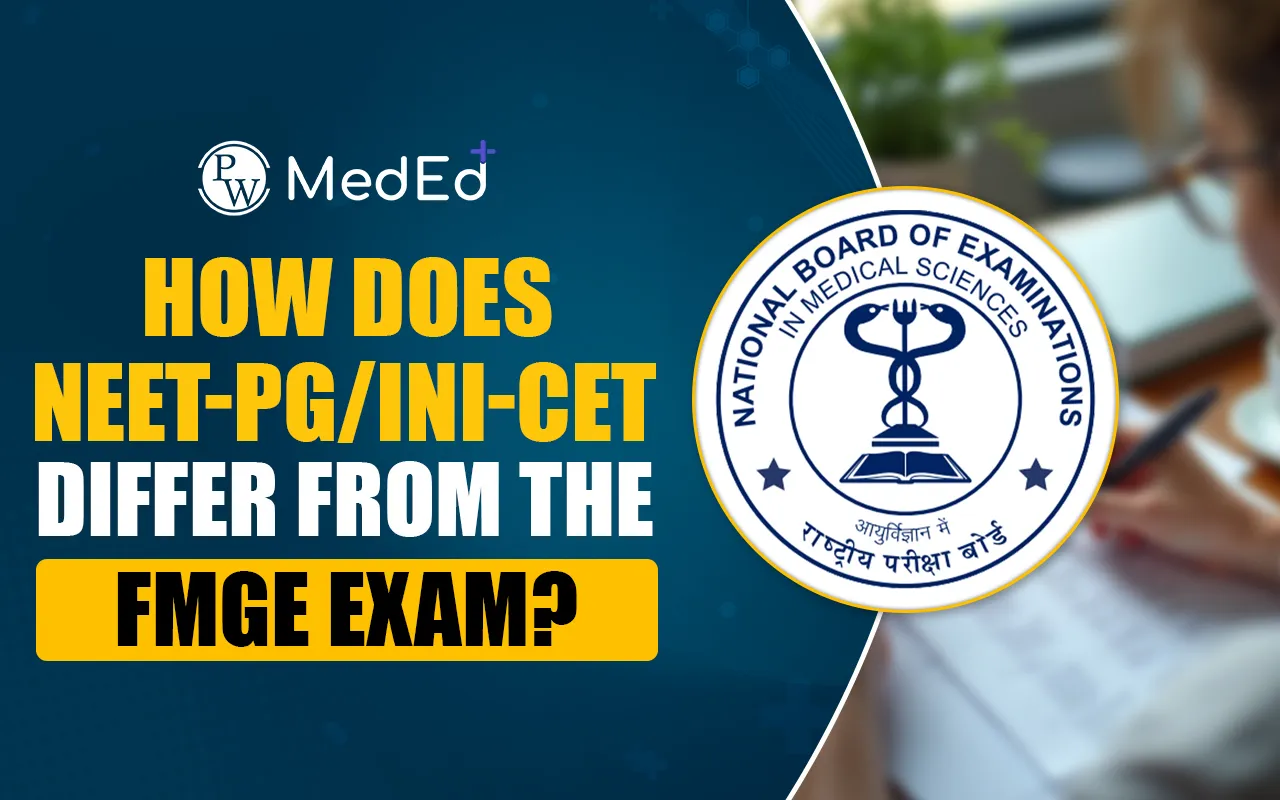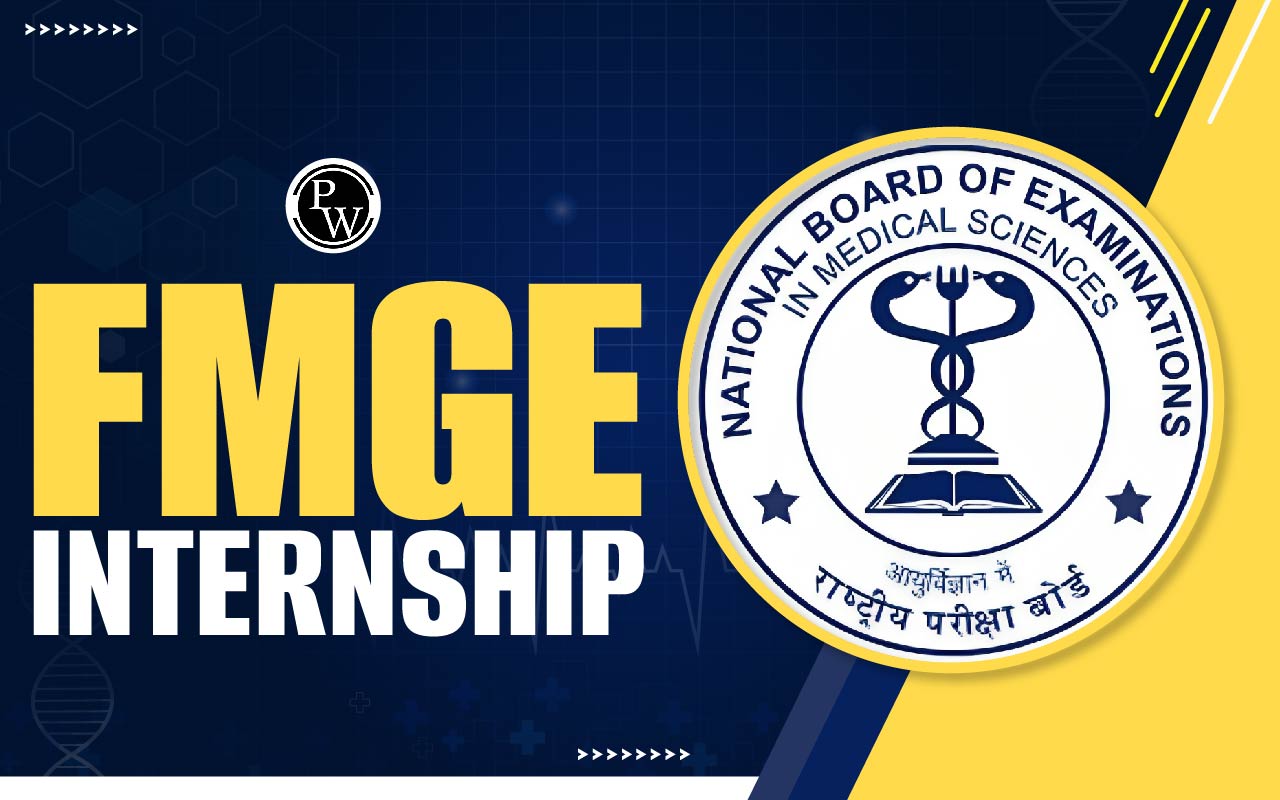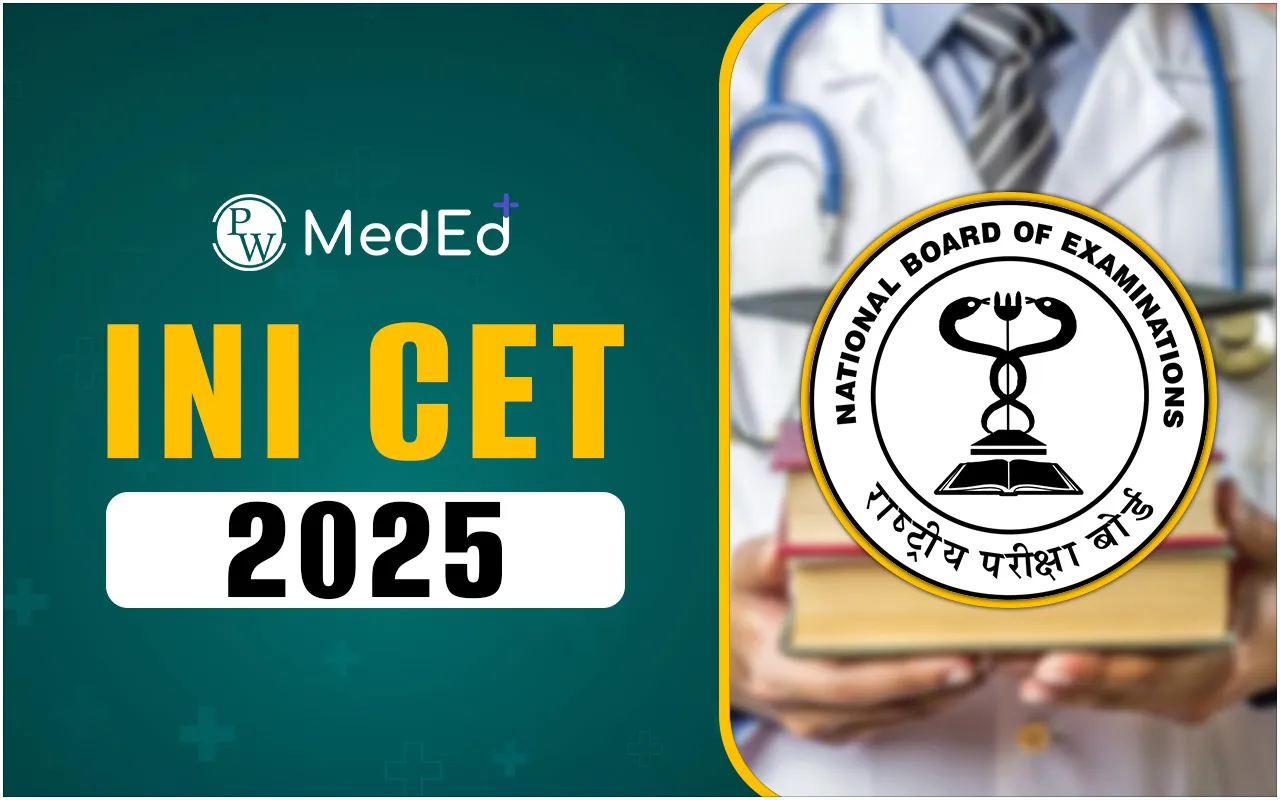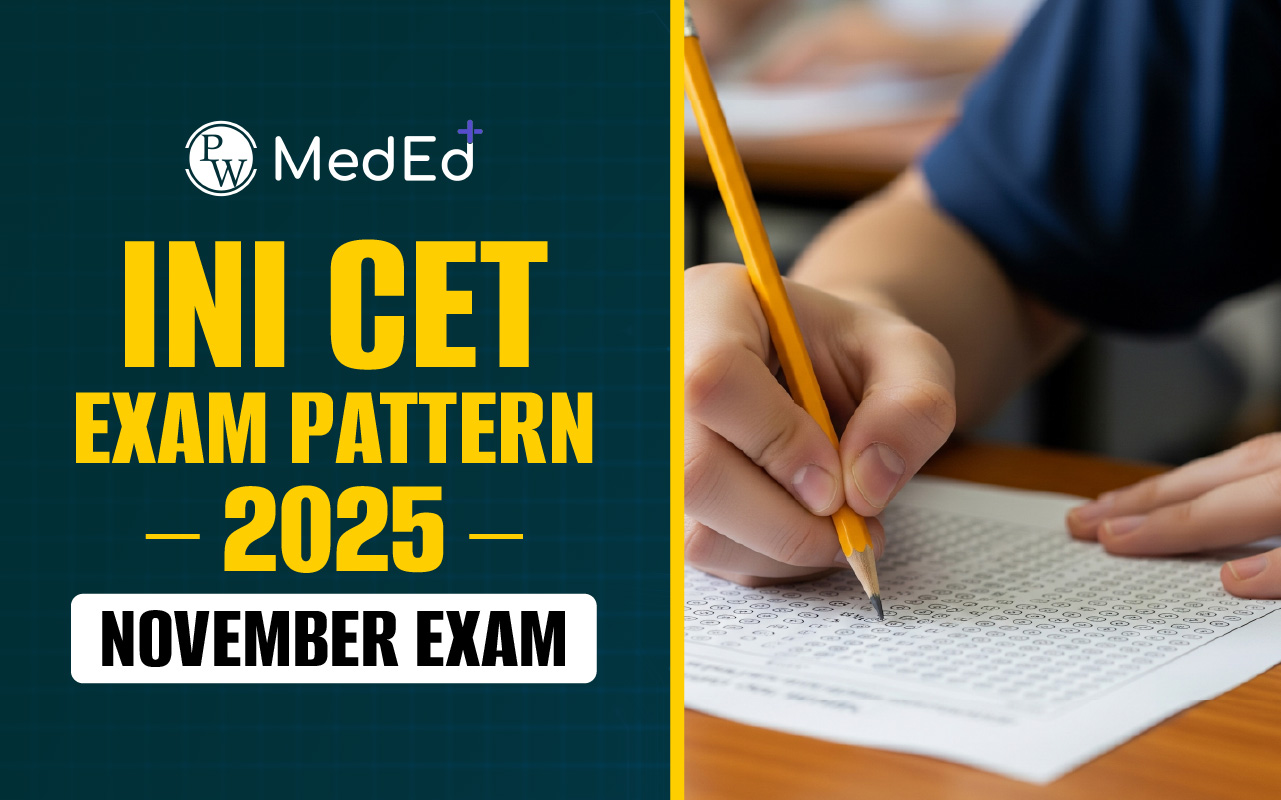
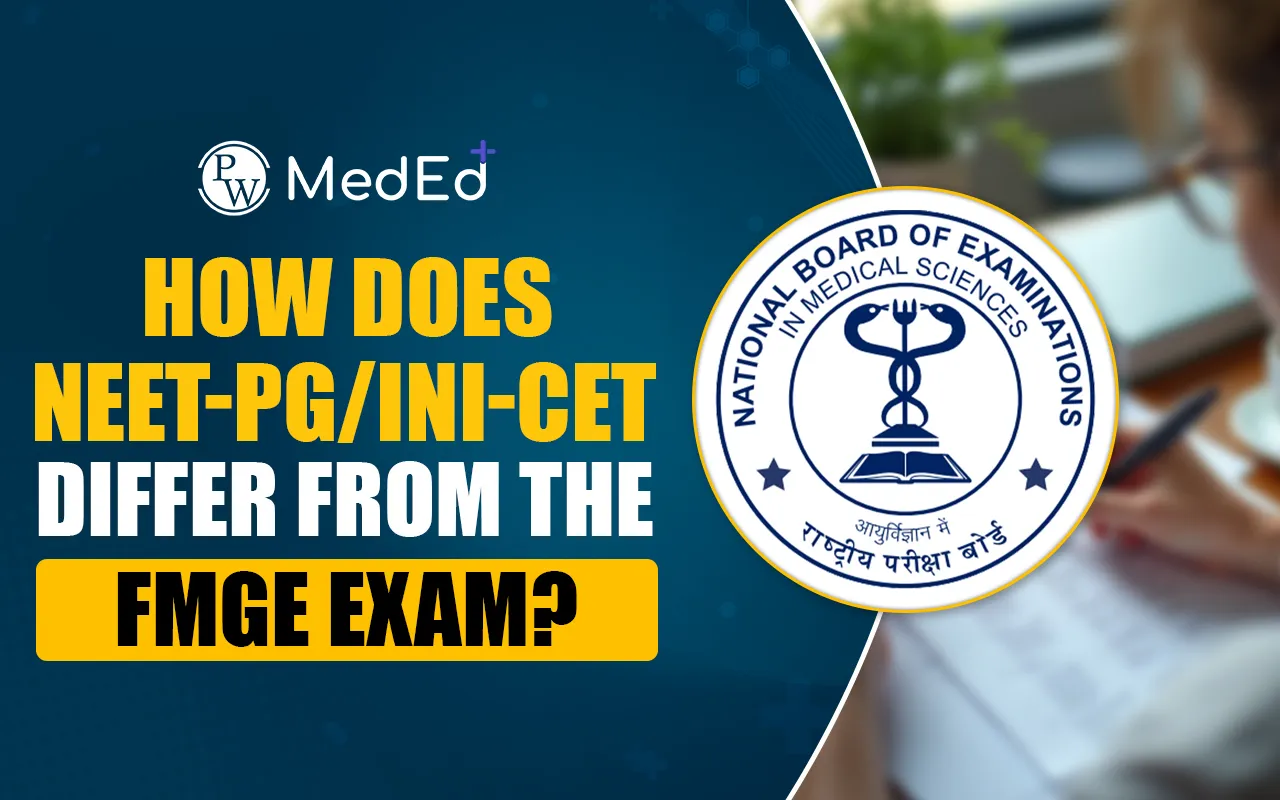
For aspiring doctors looking to make a mark in India, exams like the NEET-PG, INI-CET, and FMGE are pivotal milestones in their medical careers. However, the key differences between these exams can often be confusing, especially for foreign medical graduates. Below, we will break down how NEET-PG and INI-CET differ from FMGE in terms of eligibility, difficulty, exam structure, preparation strategies, and their impact on a medical career.
Visit - MedEd App
Eligibility: Who Can Take These Exams?
The first major difference lies in the eligibility criteria for each exam. Understanding these will help you figure out which exam applies to you.
-
FMGE: This exam is specifically designed for Indian citizens or Overseas Citizens of India (OCI) who have completed their medical education from foreign institutions. It assesses whether they have the necessary skills to practice medicine in India.
-
NEET-PG/INI-CET: Both of these exams are for Indian medical graduates who have completed their MBBS from recognized institutions in India and wish to pursue postgraduate studies (MD, MS, PG Diploma). INI-CET is unique because it specifically targets prestigious institutions like AIIMS, PGIMER, and others.
In essence, FMGE is the gateway for foreign-trained medical graduates to practice in India, while NEET-PG and INI-CET are for those aiming for specialized education in India’s medical field.
Exam Difficulty: How Hard Are These Exams?
Over the years, FMGE has become increasingly challenging, closing the gap with the other two exams. Let’s explore the difficulty levels of each exam.
-
FMGE: In the past, FMGE was considered less challenging than NEET-PG or INI-CET. However, with an emphasis on conceptual and clinical questions, FMGE has seen a significant rise in difficulty. The focus is no longer on rote learning but on clinical application and conceptual understanding.
-
NEET-PG/INI-CET: These exams are designed to be more difficult because they serve as the gateway to postgraduate medical education. Candidates are required to demonstrate a deeper understanding of medical sciences, clinical case studies, and problem-solving skills. With negative marking in place, these exams demand a more strategic approach.
Though FMGE has become more demanding, NEET-PG and INI-CET still stand at a higher level due to their focus on specialization and competitive nature.
Exam Structure and Question Strategy: What’s the Format?
Another key distinction between these exams is their structure and how candidates should approach them.
-
FMGE: The FMGE exam consists of two papers, each containing 150 multiple-choice questions (MCQs). Since there is no negative marking, candidates can attempt every question without the fear of penalties for wrong answers.
-
NEET-PG/INI-CET: Both NEET-PG and INI-CET feature multiple-choice questions (MCQs), but with negative marking (typically -1/3 for each wrong answer). This means candidates must carefully choose which questions to attempt, requiring better time management and strategic thinking.
For FMGE candidates, a "all-in" approach works, but for NEET-PG or INI-CET candidates, planning which questions to skip is just as important as knowing the answers.
Preparation Strategies: How Should You Study?
The preparation approach for these exams differs significantly due to the variations in difficulty and exam content.
-
FMGE: Candidates should focus on mastering the undergraduate medical curriculum, as FMGE tests the foundational knowledge required for practicing medicine. Candidates must understand clinical cases, basic medical concepts, and practical knowledge. In-depth MCQ practice is crucial.
-
NEET-PG/INI-CET: Preparation for these exams involves more advanced and specialized study. Candidates need to delve into postgraduate-level topics, including clinical case scenarios and recent medical advances. As both exams are highly competitive, mastering time management, MCQ-solving techniques, and analytical reasoning is essential.
While FMGE requires a solid understanding of clinical basics, NEET-PG and INI-CET demand specialization and advanced problem-solving skills.
Career Impact: What Do These Exams Lead To?
Finally, the career impact of these exams is a critical factor for understanding their significance.
-
FMGE: FMGE is crucial for foreign medical graduates who want to practice medicine in India. After passing FMGE, candidates are eligible for registration with the Medical Council of India (MCI), which allows them to practice in India.
-
NEET-PG/INI-CET: These exams open doors to postgraduate education at India’s top medical institutions. NEET-PG provides access to MD, MS, and PG Diploma programs, while INI-CET specifically allows admission to prestigious institutions like AIIMS and PGIMER, providing an opportunity for specialization.
In short, FMGE is the key to starting a medical career in India, while NEET-PG and INI-CET enable doctors to advance their careers by gaining specialization.
While FMGE, NEET-PG, and INI-CET all serve important roles in the Indian medical education system, they cater to different groups of candidates with different goals. FMGE helps foreign medical graduates practice in India, while NEET-PG and INI-CET focus on advancing the careers of Indian medical graduates seeking postgraduate education.
Whether you’re a foreign medical graduate aiming to practice in India or an Indian graduate looking to specialize, understanding these differences will help guide your preparation and career trajectory
FAQs
What is the eligibility criteria for FMGE, NEET-PG, and INI-CET?
How difficult are FMGE, NEET-PG, and INI-CET?
What is the exam structure of FMGE compared to NEET-PG and INI-CET?
How should I prepare for FMGE, NEET-PG, and INI-CET?
What career opportunities do FMGE, NEET-PG, and INI-CET lead to?

